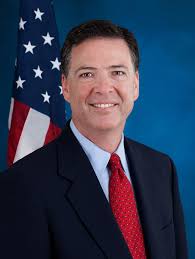
Introduction
James Comey, the former Director of the Federal Bureau of Investigation (FBI), has emerged as a pivotal figure in American politics, particularly in the context of the investigations surrounding the 2016 presidential election. His actions and decisions have sparked significant debate about ethics, accountability, and the intersection of law enforcement and politics.
The Investigation into Hillary Clinton
Comey’s tenure as director saw one of the most contentious events in recent American political history: the investigation into Hillary Clinton’s use of a private email server during her time as Secretary of State. In July 2016, Comey publicly announced that while Clinton had been ‘extremely careless,’ there was no sufficient evidence to bring charges against her. This decision garnered both applause and criticism, contributing to a divisive political atmosphere.
Collision with the Trump Administration
Following the election of Donald Trump, Comey found himself at the center of a different and even more polarized controversy: the investigation into Russian interference in the 2016 election. His dismissal by President Trump in May 2017 unleashed a firestorm, leading to the appointment of Special Counsel Robert Mueller to oversee the investigation. This move severely impacted public discourse around transparency and trust in governmental institutions.
Comey’s Memoirs and Public Discourse
In 2018, Comey published his memoir, “A Higher Loyalty: Truth, Lies, and Leadership,” which provided insights into his motivations and experiences in high-stakes political situations. His book further fueled discussions about ethical leadership and the responsibilities of public officials. Comey’s insistence on honesty and accountability resonated with many, although detractors have accused him of politicizing his role.
Conclusion
The legacy of James Comey continues to influence American politics and public perception of the FBI. His actions have resulted in ongoing debates about justice, accountability, and the role of federal agencies in political processes. As the nation moves forward, the implications of Comey’s decisions will likely be scrutinized in future discussions about political governance in America. The unfolding political landscape, coupled with the ongoing investigations into various political figures, suggests that Comey’s influence on American political discourse will endure.



